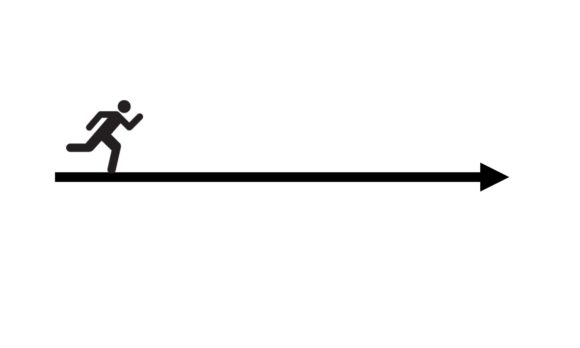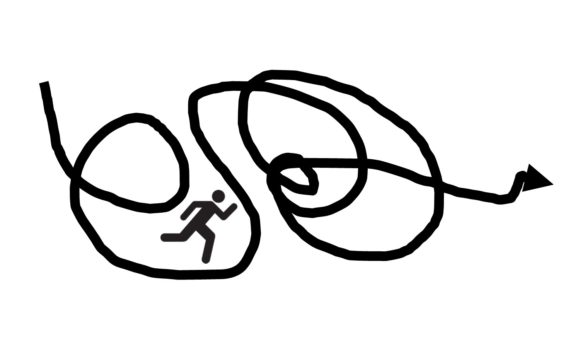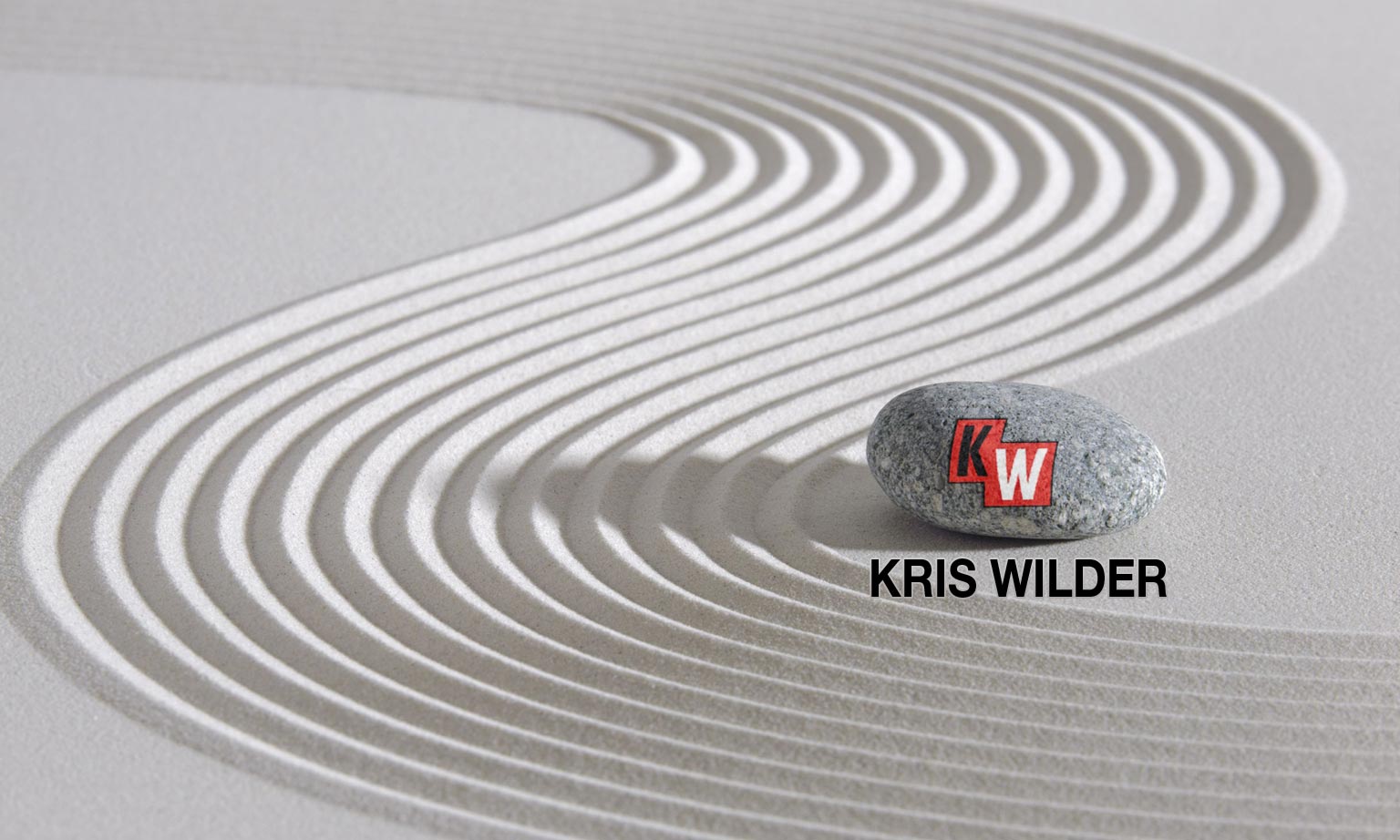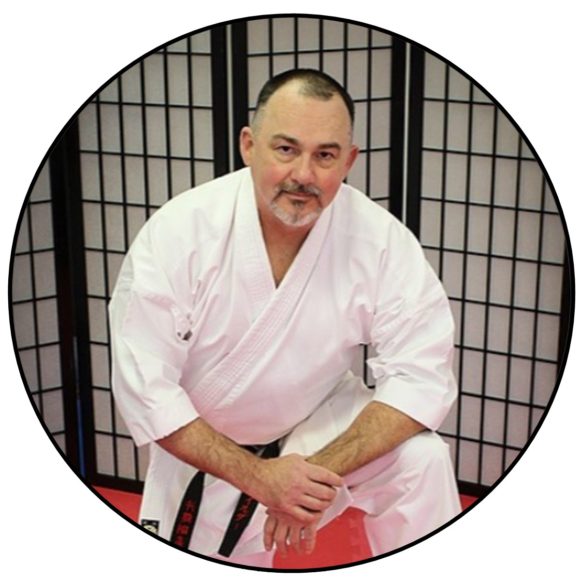
The Straight Line Mind of Karate. Karate is not a straight line. We live in a linear world. Our school system is linear. We enter school and go through the grades.
The grades are segments designed to let us say, “You will begin here and at the end on this date.” And there are expectations of competency, from the instructors, parents, and students.
As adults the world is driven by the clock, it tells us when to wake, work, and rest. Martial arts schools engage in the same behaviors, ranks, belts, time in grade, and class times.
The world projects this linear time use onto us. We accept it and project it back. In the process, we are gaining affirmation for the adoption and use of the linear experience.
Using college as an example. At the end of four years of college, you are supposed to be competent in your chosen field of study. The university then gives you a stamp of approval. That could take the shape of a Bachelor of Arts as an example.
The equation is; go to this place, come to class, get satisfactory grades, and finish. Karate looks like that, but it is not.
The classic method of apprenticeship is more reflective of the karate experience. The apprenticeship method reads; Study with me, we’ll see how you do, be good, this is an average timeline but we are not bound by it. Open-ended by today’s standards. Certainly not the straight line mind of karate.
We think the world looks like this

But it looks like this

And as a proof point, let’s use the belt rankings in karate. As rank increases responsibility increases. Responsibility to self, and others, for training tone, safety, and expectations.
This is not a linear experience. If you are a brown belt helping a white belt get their stance correct, you are reviewing. You are looking back on information already experienced. And you are learning.
Two Recommendations
We try and make it linear because we can better deal with it. The recommendation is the world isn’t linear. You should have the ability to move from linear to non-linear. Know the world wants one thing and people want another.

The second recommendation is to look at karate in light of the apprentice system. Less linear and a whole lot more experiential. This is a far more enjoyable way to spend your training time together. It is more organic than the ridged, 1,2,3 timebound method of the straight-line effort.
Don’t toss away one method over the other, know where you stand in the experience and act accordingly.
A few more related topics.
Let’s Connect
KRIS WILDER
Kris Wilder is a martial artist based in Seattle Washington. He has authored many martial art books, including the classic, The Way of Kata. Making no apologies for his obsession of Football he can be found telling any who will listen about the nuances of the Canadian Football League.


